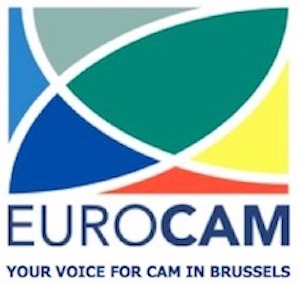Guiding principles MEP Interest Group
Members of the 2019 – 2024 European Parliament, agreed to establish an Interest Group on Integrative Medicine and Health and agree to the Guiding Principles. These Guiding Principles of the Interest Group are in alignment with the declarations on Traditional, Complementary and Integrative Medicine from Beijing in 2008, Stuttgart in 2016 and Berlin in 2017, as well as with the WHO Traditional Medicine Strategy 2014- 2023.
World Health Organization
The WHO uses the comprehensive term T&CIM (Traditional, Complementary and Integrative Medicine) to define the sum total of the knowledge, skill and practices based on the theories, beliefs and experiences indigenous to different cultures, used in the maintenance of health as well as in the prevention, diagnosis, improvement or treatment of physical and mental illness.
Official launch in the European Parliament of the Interest Group
View the official launch of the MEP Interest Group on YouTube.
Guiding principles Interest Group
Integrative Medicine and Health
Integrative Medicine and Health is a holistic approach to care that puts the patient at the centre and seeks to restore and maintain health and wellness across a person’s lifespan. This approach understands the patient’s unique set of circumstances and addresses the full range of physical, emotional, mental, social, spiritual and environmental influences that affect health. It is integrated across approaches to care — e.g. conventional, traditional, complementary — as the evidence supports. Effective interventions that are natural and less invasive should be used whenever possible.
Evidence-based/informed
Integrative Medicine and Health stands for an evidence-based/informed integration of modern Western medicine (i.e. conventional medicine in the Western world) with Traditional and Complementary medicine (T&CM).
Financial resources for research
There is increasing good evidence on the effectiveness, including quality of life, safety and cost-effectiveness of Traditional, Complementary and Integrative Medicine, and more investment in research is needed.
Medical Pluralism
Medical pluralism recognises that patients and their carers have the right to choose any appropriate therapeutic approaches and healthcare disciplines to achieve optimal health and healing while recognizing and respecting the unique contribution from many medical systems.
Freedom of choice in healthcare and access to reliable information on T&CM and Integrative Medicine and Health
Patients’ rights have increased in European legislation over the years. Freedom of choice regarding the best healthcare in individual cases contributes to the trust and satisfaction of the users in the healthcare system. This is in line with the European Charter of Patients' Rights. Currently, one in two EU citizens uses T&CIM in one form or another as part of their healthcare, whether as a complement to, or an alternative to conventional care CORDIS Yet, this high demand is not reflected in EU or national health policy or provision. As a consequence, citizens experience practical and attitudinal barriers that limit their access to and use of T&CIM. In order for T&CIM to achieve its potential, citizens need easy-to-understand information about the likely benefits and risks of supplementing their access to conventional medicine with T&CIM and about its products, practices and practitioners so they can make an informed choice.
Patients and family
Citizens today have increased access to health-related information and expect to take an active role in choosing their healthcare provision. Integrative Medicine and Health affirms the importance of an informed dialogue between health-care providers, patients, family, relatives and friends, in order to agree on a treatment that is safe, effective, and can contribute to long-term wellbeing.
Sustainable healthcare
Residues of various types of medicinal products - notably through excretions and incorrect disposal of unused medicines through sinks and toilets – have been detected in the different environmental compartments: surface water, groundwater, soil, air, and biota. The environmental risks of T&CM, as a part of Integrative Medicine, are considered to be rather negligible due to their minimal toxicity.
There is a growing amount of evidence to show that the introduction of T&CIM into primary care offers financial sustainability via less costly low-tech interventions that potentially lead to long-lasting outcomes of treatment. In addition, it can help lower the morbidity and mortality from conventional pharmaceuticals.
Holistic approach
A holistic approach focuses on the whole person, considering the individual in its physical, psychological, spiritual, social and environmental context rather than just on the illness or a diseased part of the body. It fully involves the patient in the diagnosis and management of his/her illness. Many aspects of a patient’s life may influence a health problem. Understanding the ‘whole individual environment’ helps to develop a successful treatment plan.
These guiding principles belong to the MEP Interest Group on Integrative Medicine and Health.
